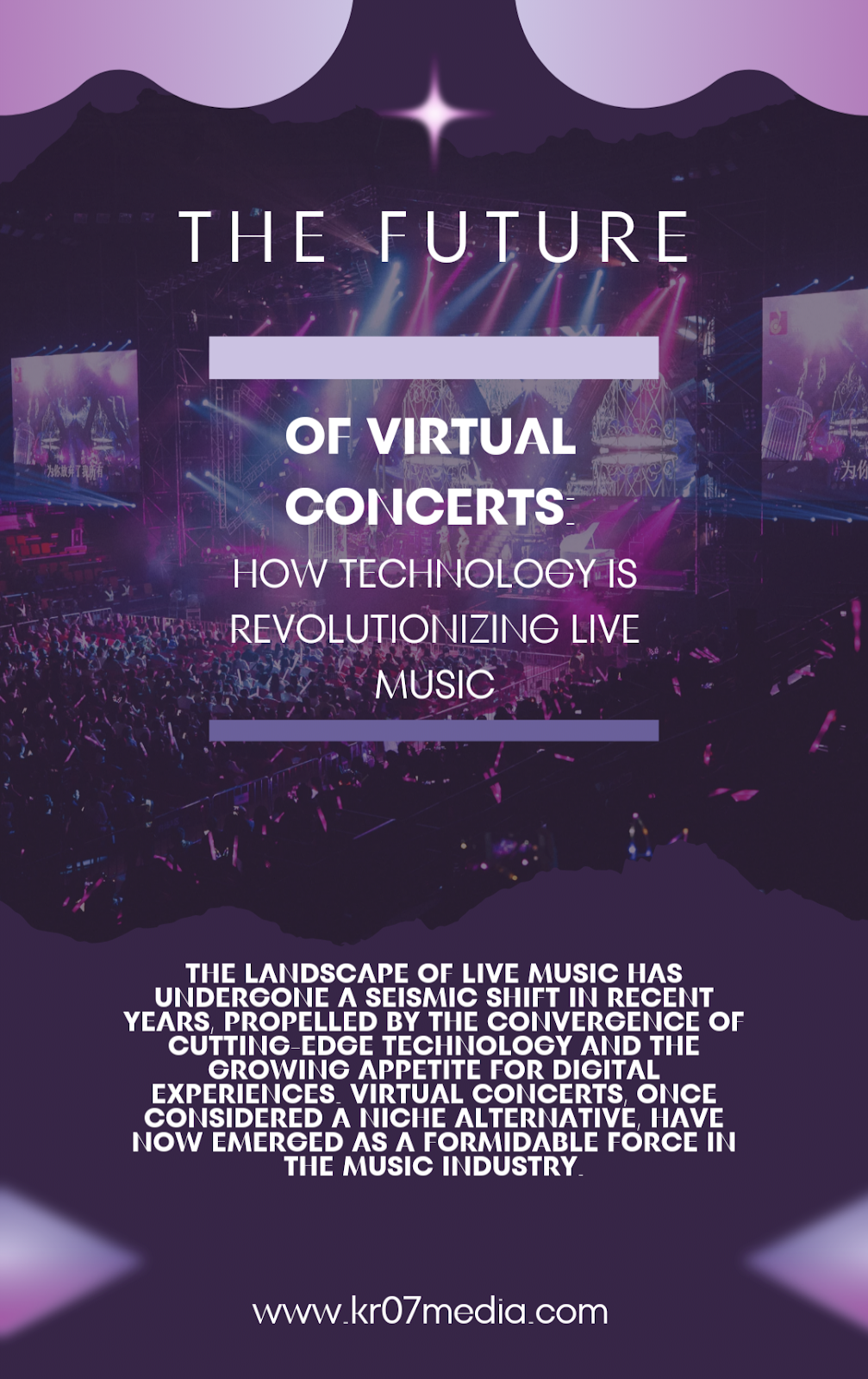The landscape of live music has undergone a seismic shift in recent years, propelled by the convergence of cutting-edge technology and the growing appetite for digital experiences. Virtual concerts, once considered a niche alternative, have now emerged as a formidable force in the music industry. As we look to the future, it's clear that the fusion of technology and live music is not just a temporary trend but a fundamental evolution that promises to reshape the way we experience concerts.
The Rise of Virtual Concerts
The COVID-19 pandemic was a catalyst for the rapid adoption of virtual concerts, as lockdowns and social distancing measures forced the cancellation of in-person events. Artists and event organizers turned to online platforms to connect with audiences, leading to a surge in virtual performances. However, what began as a necessity quickly revealed itself to be an opportunity. Virtual concerts provided a unique platform for creativity, allowing artists to experiment with new formats and reach global audiences without the logistical constraints of traditional tours.
Advancements in Technology
The future of virtual concerts is being shaped by advancements in several key areas of technology:
1. Immersive Experiences with VR and AR:
Virtual Reality (VR) and Augmented Reality (AR) are at the forefront of creating more immersive concert experiences. With VR, fans can be transported into a digital concert hall, where they can interact with the environment and even with other fans. AR, on the other hand, enhances live performances by overlaying digital elements onto the real world, blending physical and virtual realities. As these technologies become more accessible, they will play a pivotal role in making virtual concerts feel more authentic and engaging.
2. Enhanced Interactivity:
One of the challenges of virtual concerts has been recreating the energy and connection of live events. New interactive features are being developed to address this, such as real-time chat, virtual meet-and-greets, and audience participation through polls or song requests. These features help bridge the gap between artists and fans, making virtual concerts more dynamic and personal.
3. High-Quality Audio and Visuals:
Advances in streaming technology have made it possible to deliver high-quality audio and visuals that rival in-person experiences. With 4K streaming, spatial audio, and even holographic projections, virtual concerts are becoming increasingly sophisticated. This high-fidelity experience is crucial for fans who seek the same level of immersion they would expect from a physical concert.
4. Blockchain and NFTs:
Blockchain technology is opening up new possibilities for the music industry, particularly in terms of monetization and fan engagement. Non-fungible tokens (NFTs) allow artists to create and sell unique digital merchandise, such as exclusive concert recordings, virtual backstage passes, or limited-edition collectibles. These digital assets not only provide new revenue streams but also create a sense of exclusivity and ownership for fans.
The Impact on the Music Industry
The rise of virtual concerts is having a profound impact on the music industry. For artists, these digital performances offer new ways to reach audiences, monetize their work, and explore creative possibilities that go beyond the limitations of physical venues. For fans, virtual concerts provide greater accessibility, allowing them to experience live music from anywhere in the world, often at a lower cost.
Record labels and event organizers are also recognizing the potential of virtual concerts as a complement to traditional tours. Hybrid events, which combine in-person and virtual elements, are likely to become more common, offering fans the best of both worlds. Additionally, virtual concerts are opening doors for smaller or emerging artists who may not have the resources to embark on large-scale tours but can still reach a global audience online.
Challenges and Considerations
While the future of virtual concerts is promising, there are challenges that need to be addressed. One of the primary concerns is ensuring equitable access to these experiences. High-quality VR and AR setups, for example, can be expensive, potentially creating a digital divide between those who can afford the technology and those who cannot.
Moreover, the issue of digital fatigue cannot be overlooked. As people spend more time online, there is a growing need to ensure that virtual concerts remain engaging and do not become just another screen-based activity. Innovations in interactivity and content delivery will be crucial in maintaining audience interest and excitement.
Conclusion
The future of virtual concerts is bright, with technology playing a pivotal role in revolutionizing the live music experience. As VR, AR, blockchain, and other digital innovations continue to evolve, they will create new opportunities for artists and fans alike. While there are challenges to overcome, the potential for virtual concerts to complement and enhance traditional live music is immense. In this new era, the boundaries between the physical and digital worlds are blurring, and the stage is set for a future where live music is more accessible, interactive, and innovative than ever before.



